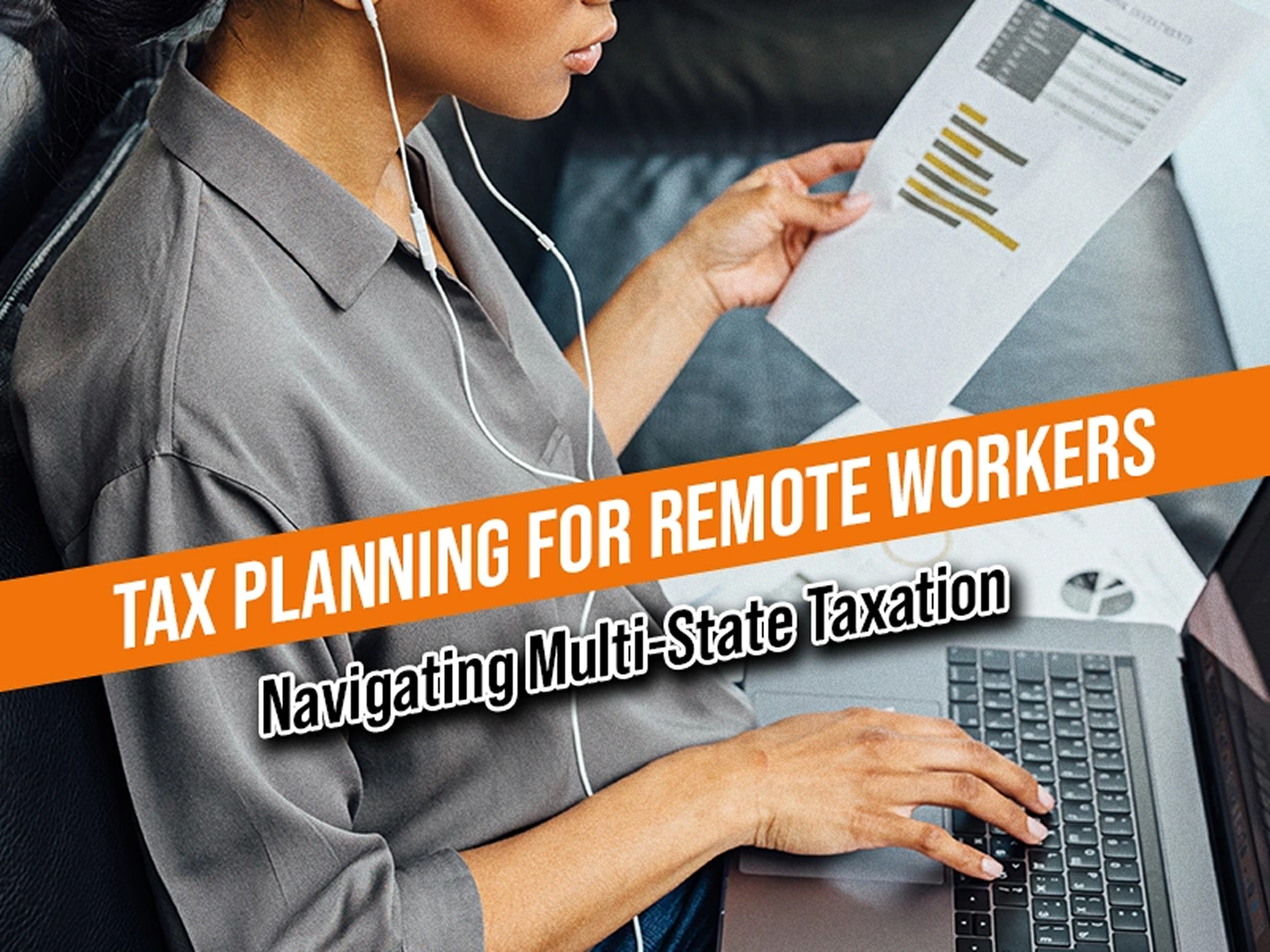
The widespread transition toward remote work has reshaped the global job market, offering both employees and employers flexibility and convenience. However, this shift has brought about complex tax challenges in the USA due to the diverse state tax laws, particularly for individuals working across multiple states. If you work remotely, understanding multi-state taxation laws is crucial to avoid unexpected tax liabilities and comply with relevant state tax laws. This blog provides insights into key tax considerations for remote workers, equipping you with the knowledge to confidently manage multi-state tax obligations and compliance requirements.
Why Multi-State Taxation Matters
Multistate taxation becomes an issue with remote workers due to the significant variation in state tax laws. Since federal income tax rules apply uniformly across the U.S., calculating your federal tax dues is relatively simple. However, that's not the case with state tax dues, as some states levy their own income tax, while others do not. Remote workers who live in one state but work for an employer based in another, or who frequently move between states, have to contend with complicated dual state and federal tax obligations based on the core concepts of nexus and residency.
The nexus concept determines the link between you and a state that gives the state the right to tax your income. On the other hand, the residency concept determines whether you are a taxable resident or non-resident of a state.
Essential Tax Considerations for Remote Workers
1. State Residency Rules
One of the reasons for the complex nature of multistate taxation is that different states adopt differing criteria for determining an individual's residency. Some states use the 183-day rule, meaning if you spend more than half the year in a state, you may be considered a resident for tax purposes. Others apply domicile tests, which assess where you maintain permanent ties, such as property ownership or voter registration.
2. Tax Nexus and Income Allocation
Tax nexus refers to the connection between a taxpayer and a state that allows the state to tax their income. Some states tax income based on physical presence, meaning if you work remotely from a state, even temporarily, you may be liable to pay taxes there. Others follow the convenience of the employer rule, taxing income based on the employer's location rather than where the work is performed.
3. Nonresident Filing Requirements
If you earn income in a state where you are not a resident, you may need to file a nonresident tax return. Each state has different thresholds for requiring nonresident filings, often based on days worked or income earned.
4. Reciprocal Agreements Between States
Some states have reciprocal tax agreements, allowing residents to pay taxes only in their home state, even if they work in another state. For example, states like Illinois and Wisconsin have agreements that prevent double taxation for workers commuting across state lines.
Strategies for Managing Multi-State Taxation
Adopt the steps mentioned below to ease out filing of your state taxes if you are a remote worker.
1. Track Your Work Locations
Maintain detailed records of where you work each day for accurate tax obligation determination.
2. Understand State-Specific Rules
As discussed above, state taxation laws can be complex, with different states having different rules regarding the payment of state taxes. Research tax laws in each state where you work to avoid unexpected liabilities.
3. Leverage Tax Credits
Some states offer credits for taxes paid to another state, and you can use these laws to your advantage. This will help you reduce the risk of double taxation.
4. Consult a Tax Professional
Given the complexity of multi-state taxation, working with a tax expert would be your best option if you do not have the time to research complex state income tax regulations. A tax professional can help optimize your deductions and ensure compliance with specific federal and state laws.
Multi-state taxation can be challenging for remote workers, but proactive planning can help mitigate risks. By understanding state residency rules, tax nexus, and filing requirements, remote professionals can navigate tax obligations efficiently and avoid costly penalties.
Simplify Multi-State Taxation with Finlotax
At Finlotax, we know that navigating multi-state tax laws as a remote worker can be overwhelming. That's why we have put in place a seamless process that allows you to fulfill with federal and state tax obligations and pay your taxes on time. Whether it's managing residency rules, tax nexus, or nonresident filings, our expert team ensures compliance while maximizing deductions. Stay ahead of tax obligations and avoid unexpected liabilities with our tailored tax strategies. All you need to do is reach out to us at 4088229406 to experience peace of mind regarding all your tax obligations.

